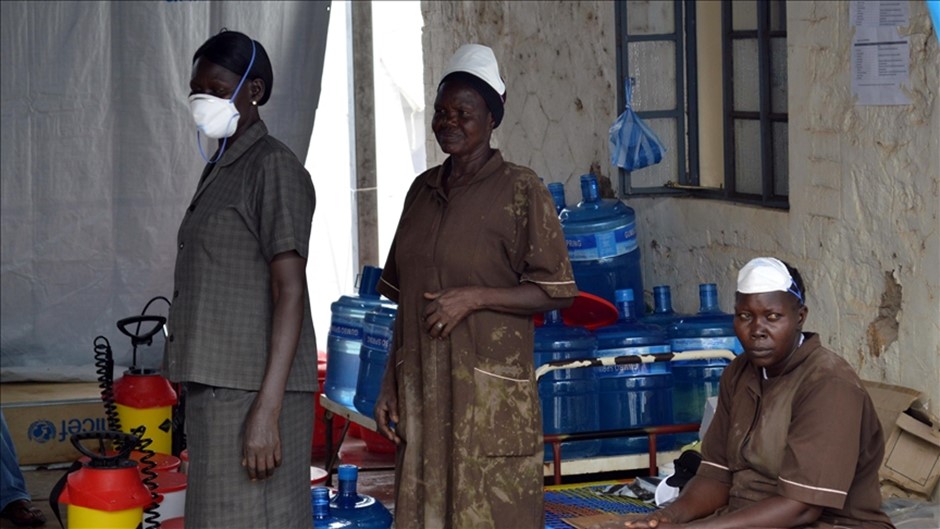By William Madouk
Embassy of the United States of America has committed $200,000 to the World Health Organization (WHO) to support Cholera response activities in South Sudan.
American government through, United States Agency for International Development (USAID), stated in a press release obtained by this outlet that they are assisting in the containment of cholera in South Sudan.
Currently, U.S. Embassy is providing emergency water, sanitation, and hygiene (WASH) services in collaboration with partners UNICEF, IOM, MSF, and WHO.
“Provide life-saving medical care, support vaccination campaigns, provide treatment kits and diagnostic tests, and raise public awareness to curb the spread of cholera,” partly reads the statement.
Two million water purification tablets, sufficient to treat six million gallons of water, were also sent by the United States through USAID to the communities most impacted by the outbreak.
“On December 29, we delivered more than two million Aquatab water purification tablets as part of the humanitarian response to South Sudan’s ongoing cholera outbreak,” it stated.
“In addition to these efforts, the United States has committed $200,000 to the World Health Organization (WHO) to support cholera response activities in South Sudan.”
The US says this funding will improve public awareness campaigns about the risks of cholera and preventive steps like using safe water, handling food safely, and maintaining good hygiene.
Additionally, it will bolster WASH initiatives and provide medical professionals with vital tools for efficient case management.
Since cholera was confirmed in Upper Nile State on October 23, the outbreak has spread rapidly, with more than 13,206 cases and 199 deaths reported as of December 29.
As of yesterday, Juba County Authority said at least 27 people have died of cholera ailment.
“More than 27 people have succumbed to the disease,” said Mayor of Juba City Council Emmanuel Tete, During a prayer service at Rejaf Diocese Church.
He added, “If this outbreak had occurred during the rainy season, it could have affected more than 10,000 people.”
Besides, the U.S embassy stated that the Aquatabs donation and additional funding underscore the United States’ steadfast commitment to supporting the people of South Sudan.
“At the same time, we renew our call on South Sudan’s transitional government to start using public revenue to address its people’s health needs, provide other basic services, and to pay public sector salaries for health workers, other civil servants, and security personnel,” the stated read.
Health authorities continue to deploy vital needed services to contain the disease and spread messages to the public on how to prevent ailment from spreading further through hygiene keeping.
Cholera is an acute intestinal infection caused by contaminated food and drinking water which can cause diarrhea, severe dehydration and death if treatment is not promptly given. Children under five and the elderly are particularly vulnerable.
Over 50% of South Sudanese people still defecate in the open, according to a March report from UNICEF and the World Health Organization (WHO).
Basic sanitation dropped from 16% to 14%, according to the 2023 report. Conversely, reports of open defecation cases increased from 60% to 63%, while the percentage of people without access to a basic water supply decreased from 41% in 2010 to 39% in 2020.
With cholera at the doorstep, what could raise an eyebrow is – the report revealed that over 60% of South Sudan’s population had no access to safe and clean drinking water and the majority answered nature’s call in an open space.
Pal Mai Deng, minister of Water Resources and Irrigation minister, said in march that they were developing a clear roadmap for transitioning from the humanitarian dependency syndrome to sustainable development in all sectors of the country.
However, health experts advised that hand hygiene is at times overlooked but it is very effective as well as drinking clean, boiled or chlorinated water.
“Prevention methods against cholera include improved sanitation and access to clean water. Cholera vaccines that are given by mouth provide reasonable protection for about six months,” he said.
Another primary treatment for affected individuals is oral rehydration salts (ORS), the replacement of fluids and electrolytes by using slightly sweet and salty solutions. In children, zinc supplementation has also been found to improve outcomes.
Ministry of Health urged for promotion of hygiene campaigns such as personal hygiene, Jerrycan cleaning, household hygiene, increased access to clean water and soap for hand wash and danger of open defecation.



